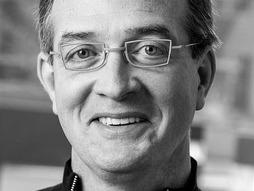Inspired by open-source software models, Sage Bionetworks co-founder Stephen Friend builds tools that facilitate research sharing on a massive and revolutionary scale.
Why you should listen
While working for Merck, Stephen Friend became frustrated by the slow pace at which big pharma created new treatments for desperate patients. Studying shared models like Wikipedia, Friend realized that the complexities of disease could only be understood -- and combated -- with collaboration and transparency, not by isolated scientists working in secret with proprietary data
In his quest for a solution, Friend co-founded Sage Bionetworks, an organization dedicated to creating strategies and platforms that empower researchers to share and interpret data on a colossal scale -- as well as crowdsource tests for new hypotheses.
As he wrote on CreativeCommons.org, "Our goal is ambitious. We want to take biology from a place where enclosure and privacy are the norm, where biologists see themselves as lone hunter-gatherers working to get papers written, to one where the knowledge is created specifically to fit into an open model where it can be openly queried and transformed."
What others say
“Sage ... is attempting to do for biology what Facebook and Twitter have done for social networking, and Linux has for open-source software.” — Xconomy.com, August 6, 2009

